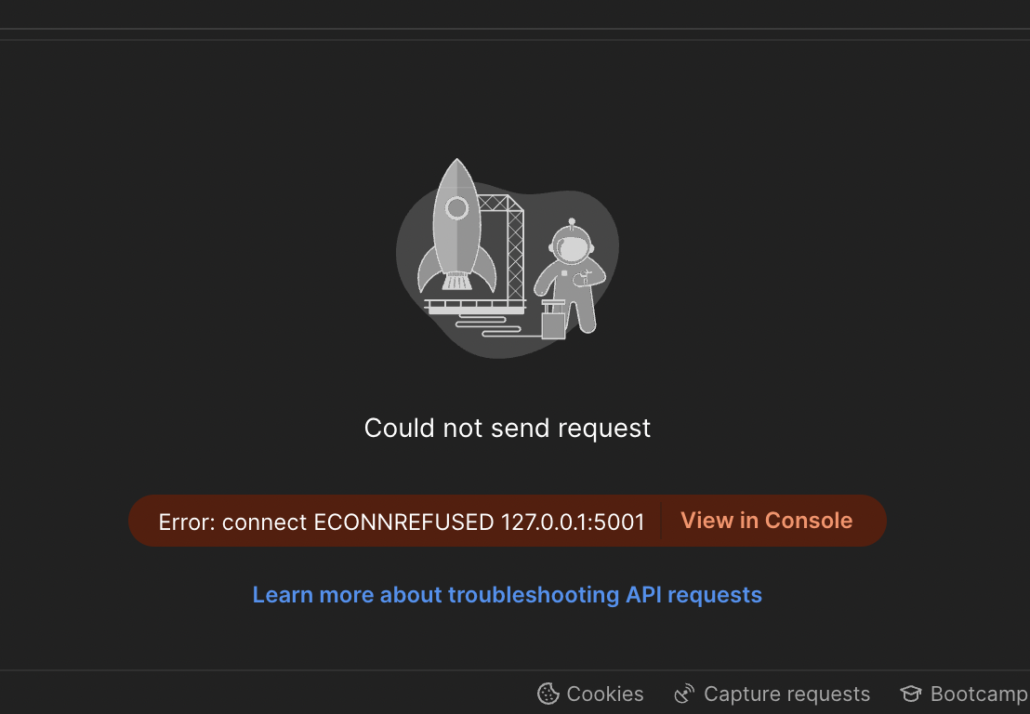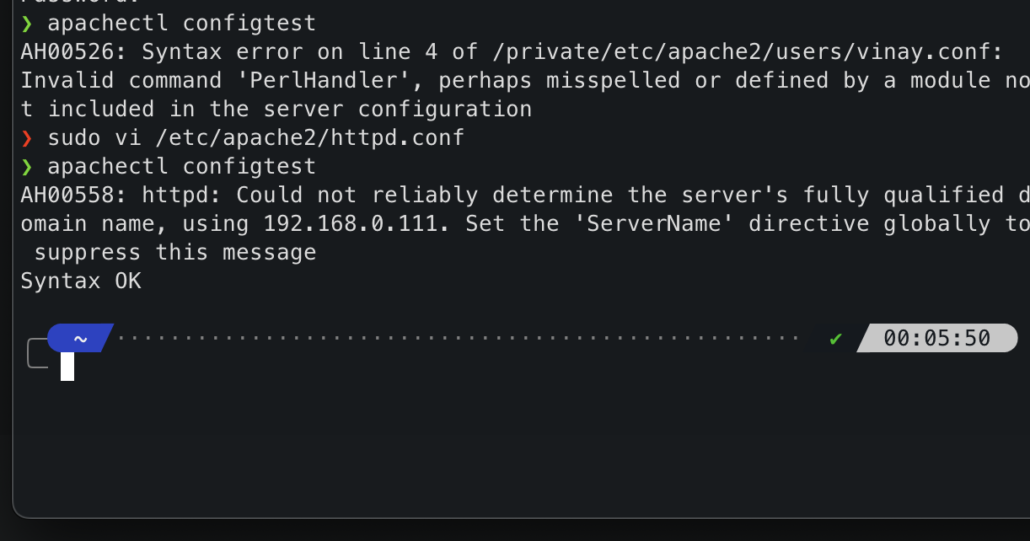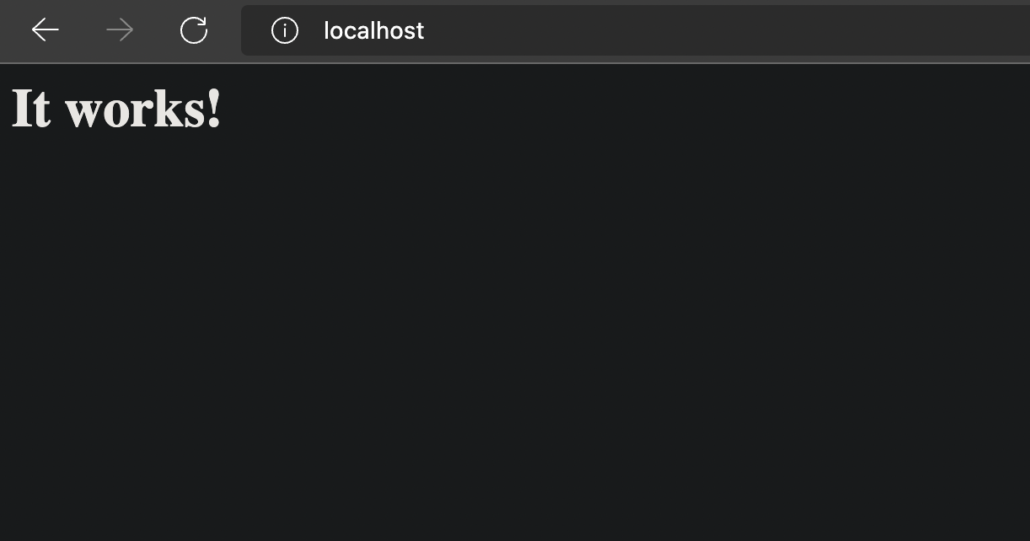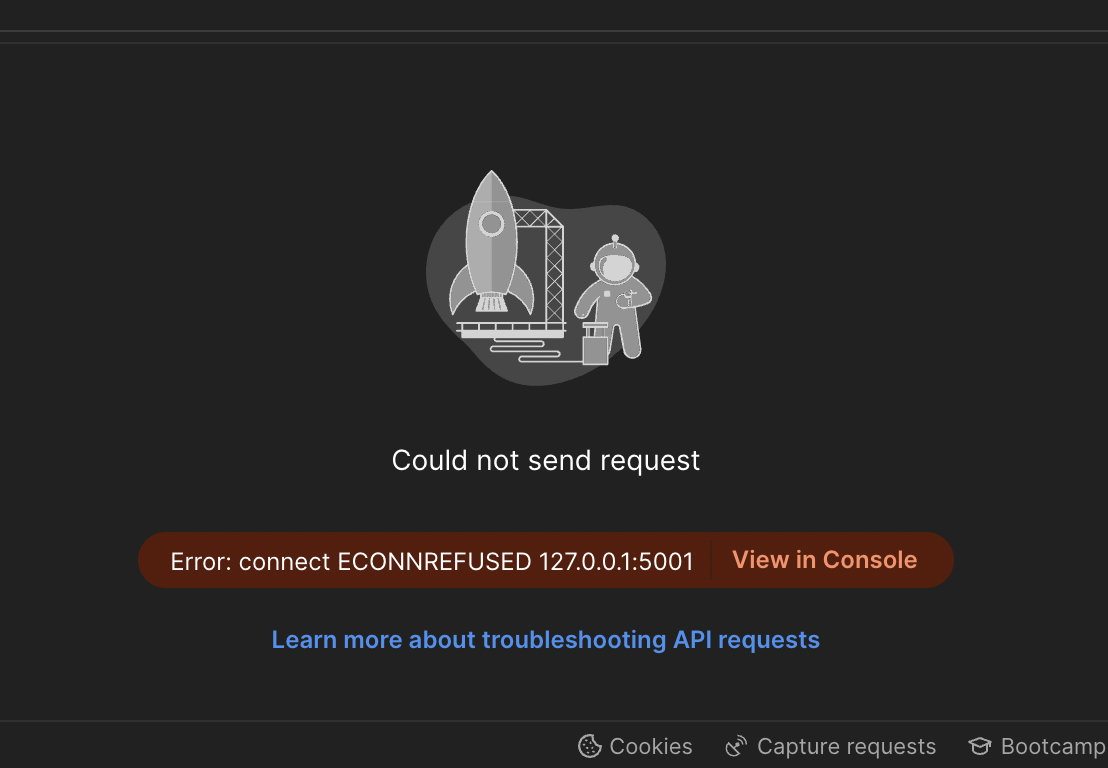After moving to a new macbook 2021, setting up my localhost development environment was smooth and cool until i couldn’t make API requests via Postman and through VSCode using rest calls extension. The following errors occurred leaving me wondering what was wrong.

After move back and forth the web i found a solution.
NOTE: This solution only works with macOS 12 “Monterey”. To Fix on older other mac versions. See this Link
Follow the steps below to FIX the localhost issue
Step 1:
To get started, edit the Apache configuration file as root by typing
sudo vi /etc/apache2/httpd.confStep 2:
Enable Perl by uncommenting line changing:
#LoadModule perl_module libexec/apache2/mod_perl.soTO
LoadModule perl_module libexec/apache2/mod_perl.soStep 3:
Enable personal websites by uncommenting the following at line 184:
#LoadModule userdir_module libexec/apache2/mod_userdir.soTO
LoadModule userdir_module libexec/apache2/mod_userdir.soStep 4:
(See below for an important new Access control level change that will be required in Monterey for personal websites.)
#Include /private/etc/apache2/extra/httpd-userdir.confTO
Include /private/etc/apache2/extra/httpd-userdir.confStep 5:
type: ":x" to save and quit
Step 6:
Open the file you just enabled above with:
sudo vi /etc/apache2/extra/httpd-userdir.confStep 7:
uncomment the following at line
#Include /private/etc/apache2/users/*.confTO
Include /private/etc/apache2/users/*.confStep 8:
Type cd /etc/apache2/users/ then ls to list the content, if you find your username config file, good, skip to step 11. If not, continue;
Step 10:
sudo vi /etc/apache2/users/<your short user name>.confPaste the following code
<Directory "/Users/<your short user name>/Sites/">
AddLanguage en .en
AddHandler perl-script .pl
PerlHandler ModPerl::Registry
Options Indexes MultiViews FollowSymLinks ExecCGI
AllowOverride None
Require host localhost
</Directory>There is a new security measure put in place by default in macOS 12 “Monterey”. Other users have no access to another user’s home directory. This includes the special “_www” user that is running the Apache web server.
Run the following command to give the Apache web server access to the Sites folder in your home directory.
Step 11
chmod +a "_www allow execute" ~Now you are ready to turn on Apache itself. But first, do a sanity check. Sometimes copying and pasting from an internet forum can insert invisible, invalid characters into config files. Check your configuration by running the following command in the Terminal:
apachectl configtestIf this command returns “Syntax OK” then you are ready to go. It may also print a warning saying “httpd: Could not reliably determine the server’s fully qualified domain name”.
But for a development server, you do not need to do anything. You can just ignore that warning. You can safely ignore other warnings too.
See below, my output

Turn on the Apache httpd service by running the following command in the Terminal:
sudo launchctl load -w /System/Library/LaunchDaemons/org.apache.httpd.plistThis command might fail with an error: “Load failed: 37: Operation already in progress”. If so, that means your web server is already running from a previous operating system version. However, you will still need to bump Apache to reload with the configuration changes you’ve just made. Use the following command:
sudo apachectl gracefulIn you browswer, navigate to your web site by entering the following into Safari’s address bar:
It should say: It works! as seen below; Your localhost should now work!



thank you you saved me!